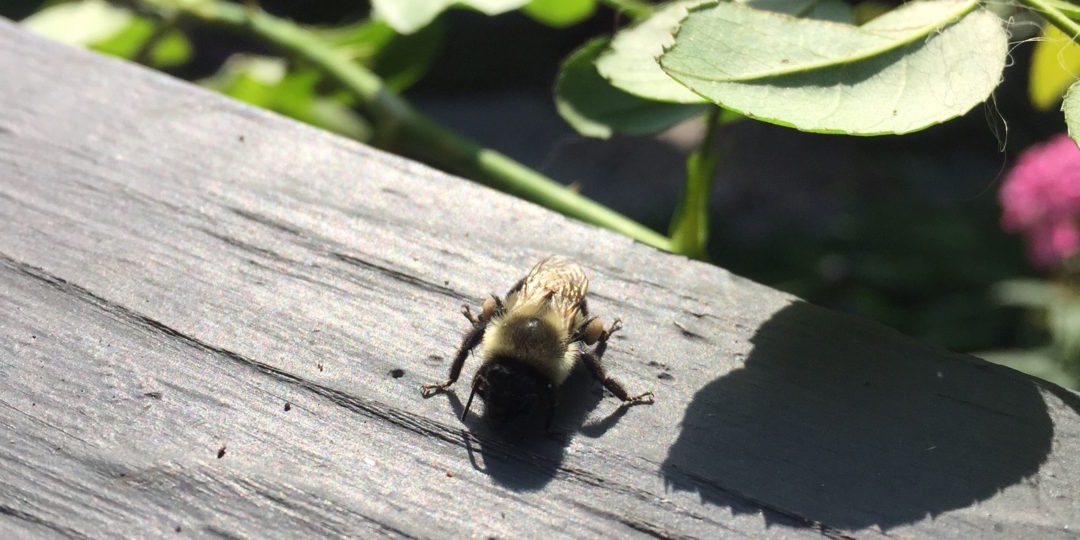Sugar-Sweet Emotion
by Emily Dentico

Does eating your favorite food put you in a good mood, give you that extra push to go about your day? Researchers at Queen Mary University of London released a study that suggests bumblebees demonstrate similarly “happy” responses when they eat their favorite treat, sugar water.
Bees begin to forage at ambiguous food sources and recover from predator attacks more quickly when they consume sugar water first. This suggests a basic form of emotions in bees, similar to optimism in mammals.
Researchers trained bees to enter a chamber and find a reward of sugar water under blue markers. There was plain water under green markers. Of 24 total bees, 12 got an extra, sweeter dose of sugar water before entering the test chamber. The other 12 bees were a control group. They received no sugar water before release into the chamber.
When introduced to a novel color, the bees that got the extra sweet-treat more readily approached the new color to forage for a reward. In the second part of the study, the researchers simulated a crab spider attack by briefly restraining bees, and then releasing them to forage. Half of the bees received a dose of sugar water before restraint, while the half in the control group received none.
As expected, the bees in the experimental group recovered more quickly from the attack and returned to foraging in less time than the bees in the control group.
More than just a sugar rush
To validate that these results are related to “emotion,” the researchers performed further tests that blocked neurochemicals known to be related to mood. When two of these neurochemicals, dopamine and serotonin, were blocked, researchers observed that the sugar water treat had no effect on the time it took for bees to forage. They performed at the same speed as the bees that received no sugar water treat.
These results confirmed the researchers’ hypothesis, that a positive brain state affected decision-making in bees. The authors wrote that “the adaptive function of emotions is thought to be the integration of information about the environment and body to modulate decisions and behavior.” Emotion in mammals is often linked to decision making. A positive mood leads to a more enthusiastic response to ambiguous stimuli, where a negative mood shows a more cautious response to the same stimuli.
Further research is needed to confirm that results are not due to a confounding factor, such as an energy spike following sugar intake. This research is exciting in its implications for how our honey bees respond to being fed, and how it might contribute to the success of the colonies we manage.
If you’re interested in reading the whole paper, it is available online from ResearchGate.
Update on 10/31/16: The team’s research was also featured last month in Scientific American, follow the link to check it out!